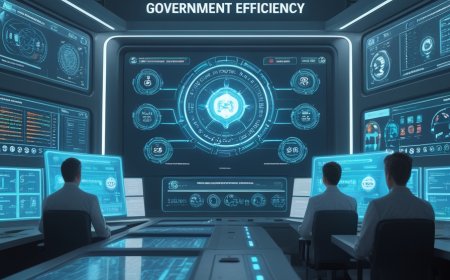South Korea’s anti-American president is coming to Washington
Lee, as president, has wasted no time chipping away at the relationship with the U.S.

South Korea’s leftists and rightists held competing demonstrations in the capital city of Seoul today, which is the nation’s National Liberation Day.
This year, the country celebrated the 80th anniversary of the end of Japanese rule. The day also is the 77th anniversary of the founding of the Republic of Korea, or South Korea.
The crowds this year were especially large because they came soon after Lee Jae-myung’s win in the June 3 snap presidential election. The contest, marred by widespread irregularities, was held to replace Yoon Suk Yeol, who was impeached and later removed from office following his short-lived declaration of martial law in early December.
The competing gatherings in the capital city were an early gauge of Lee’s popularity. He has been a particularly divisive figure so far.
Soon after the demonstrations, Lee will reportedly head to Washington for a visit starting Aug. 24. His visit to the White House with President Donald Trump, expected for Aug. 25, could be one of the most important meetings ever between an American and a Korean leader.
Lee is virulently anti-American. At stake, therefore, is the future of the treaty relationship between Washington and Seoul. Democracy in South Korea is also at risk. Lee, in the name of democratic governance, is fast taking steps to end it.
While publicly aligning himself with the U.S., Lee has moved to undermine the fundamental basis of his country’s partnership with America, the formal military alliance, formed in 1953 just months after the Korean War armistice.
While campaigning for the presidential nomination of the Democratic Party of Korea in July 2021, Lee called American troops in his country an “occupying force.” Even more explosively, he has blamed the U.S. for maintaining Japan’s colonization of Korea.
Lee’s leftist party, known as Minjoo, has a history of both opposing close ties with Washington and actively building relations with Beijing and Pyongyang.
Lee, as president, has wasted no time chipping away at Korea's relationship with the U.S. For instance, in a move that will degrade military readiness, the annual Ulchi Freedom Shield joint exercise scheduled to begin on Monday, will be drastically scaled back — especially the crucial field training component of the 10-day event.
South Korea’s Ministry of Defense cited logistical adjustments to the training cycle for the changes in the exercises, but they were in reality the result of pressure from Lee. Unification Minister Chung Dong-young noted North Korea’s criticisms of the joint drill when he publicly demanded the reduction of the exercises.
On Aug. 7, a Unification Ministry official, speaking anonymously to the press, confirmed that the exercises were “adjusted” due to concerns about North Korea’s reaction.
Of greater concern, on July 21, Lee’s government conducted a raid on the Osan Air Base, which is jointly operated by U.S. Forces Korea and the Republic of Korea Air Force.
Specifically, Special Prosecutor Cho Eun-seok entered the Master Control and Reporting Center, operated by both militaries, in violation of the Status of Forces Agreement because there was no prior notification of the American military. Cho seized classified radar data and information on the U.S. Air Force’s U-2 surveillance plane.
Tara O, a former U.S. Air Force lieutenant colonel who served at Osan, told me that “Cho and his large team absolutely should not have had access to such classified information.”
The raid preceded the cancelation of at least two high-level exchanges between Washington and Seoul.
The first was a planned July 21 meeting between Secretary of State and National Security Advisor Marco Rubio and Korea’s National Security Advisor Wi Sung-rak, and the second was the “2+2” trade meeting. The Korean representatives to the talks were notified the meeting was called off just as they were about to board a plane to travel to the U.S.
President Lee has also been attacking South Korea's democratic institutions. He led the effort in the National Assembly, the country’s unicameral legislature, that paralyzed Yoon’s government by filing 22 impeachment motions.
Lee, after leading the effort to impeach Yoon for his Dec. 3 declaration of martial law, then used the impeachment power to destabilize the interim government of Acting President Han Duck-soo.
After the country’s Constitutional Court removed Yoon, Lee had Yoon imprisoned on spurious charges of “insurrection.”
“Lee and his party have created a false narrative of insurrection,” Morse Tan, a former U.S. ambassador-at-large for Global Criminal Justice, said to me this month.
Lee’s government has held Yoon in inhumane conditions. “The Democratic Party of Korea jailed Yoon in a tiny cell in sweltering weather, and they have been denying him medications,” O, now at the East Asia Research Center, told me. Some fear Yoon will die in custody, but that does not appear to concern the ruling party.
“Even if he lives, he must live in prison, and even if he dies he must die in prison,” said Kim Byung-kee, Minjoo’s floor leader in the National Assembly.
Yoon is not the only target of the ruling party. Lee’s government has been constricting free speech on social media platforms, investigating citizens for nothing more than lawful assembly and free expression, raiding houses of worship and moving to outlaw the main opposition party.
On Wednesday, South Korean prosecutors raided the office of the People Power Party.
“These are the things done by leftist dictatorships,” said Tan. “The attack on freedom is ferocious.”
The U.S. has endured previous leftist, anti-American presidents in South Korea — to be specific, Kim Dae Jung, Roh Moo-hyun and Moon Jae-in. There is apparently a feeling in Washington that the U.S. can similarly outlast Lee Jae-myung.
Perhaps America can. But Lee, unlike his predecessors, is more determined and ruthless. America’s alliance with South Korea might not survive Lee’s rule, and its democracy is in even greater danger.
Gordon G. Chang is the author of “Nuclear Showdown: North Korea Takes On the World and "Losing South Korea.”.
What's Your Reaction?








































